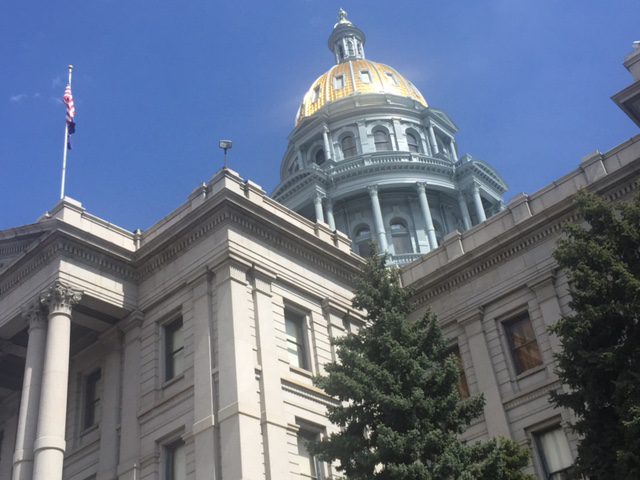A summary of the list of recommendations on the implementation of the OBBBA in Colorado regarding public benefits systems and work requirements.
Recent articles
CCLP testifies in support of Colorado’s AI Sunshine Act
Charles Brennan provided testimony in support of Senate Bill 25B-004, Increase Transparency for Algorithmic Systems, during the 2025 Special Session. CCLP is in support of SB25B-004.
Coloradans launch 2026 ballot push for graduated state income tax
New ballot measure proposals would cut taxes for 98 percent of Coloradans, raise revenue to address budget crisis.
CCLP statement on the executive order and Colorado’s endless budget catastrophe
Coloradans deserve better than the artificial budget crisis that led to today's crippling cuts by Governor Jared Polis.
Provider-fee enterprise would relieve state budget problems

Critical programs and services in Colorado perennially face cuts even in times of prosperity because of the budgetary constraints under the amendment known as Taxpayers Bill of Rights (or TABOR). This paradox is inadvertently exacerbated by the hospital provider fee established by lawmakers. The fee was created in 2009 to let Colorado’s Medicaid program draw matching federal dollars to fund health services for indigent patients and to expand Medicaid programs to better meet the needs of vulnerable Coloradans.
Due in part to the economic recovery, Colorado last year collected revenues that exceeded TABOR’s spending limits triggering, tax rebate. The rub is that while the state is issuing tax rebates, budget shortfalls are forcing the state legislature to cut government programs and under-fund priorities like K-12 education and transportation in order to balance the budget.
To rectify this situation, lawmakers introduced legislation in 2015 that would create a state enterprise to collect and administer the fee –exempting the revenue from TABOR’s spending limits. The legislation failed late in the 2015 session, amid concerns about whether it complied with the state constitution. Still, the idea of creating an enterprise was widely discussed in the months before the 2016 session convened.
With the end of the 2016 legislative session approaching and Colorado’s Attorney General affirming that such a move would be legal, House Speaker Dickey Lee Hullinghorst, D-Boulder and Sen. Larry Crowder, R-Alamosa, re-opened the enterprise discussion with House Bill 1420, which is currently working through the Colorado legislature.
CCLP strongly supports HB 1420 because it will eliminate the pressure to reduce the hospital provider fee to avoid refunds that harm services paid for by the general fund. The hospital provider fee allows Colorado to increase hospital reimbursements for care provided to Medicaid and indigent clients; increase the number of insured Coloradans by funding the Medicaid expansions; and improve the quality of care for Medicaid clients by incentivizing hospitals to make quality improvements. Increased funding in these areas as a result of the hospital provider fee greatly improves access to care for low-income Coloradans and reduces the need among hospitals to shift the cost of uncompensated care to other payers.
Due to this year’s budget constraints, Gov. John Hickenlooper proposed a $73 million cut to the hospital provider fee that was incorporated into the state budget. Such a cut will result in Colorado foregoing $73 million in federal matching funds for Medicaid and indigent care. Under HB 1420, such cuts might not be necessary in future years.
In addition, HB 1420 will allow greater General Fund expenditures for important government priorities. The Colorado Constitution limits the amount of money the state government can collect from tax revenues and fees. Any revenues and fees collected over that limit must be returned to taxpayers in the form of individual tax rebates. Due in part to last year’s strong economy, this constitutional scheme resulted in tax refunds totaling approximately $190 million with average individual refunds ranging between $34 and $108 per taxpayer. That means that, while the governor was forced to propose cuts to higher education and hospitals and continue underfunding K-12 education and transportation, the government had to provide $190 million in tax refunds.
The hospital provider fee generates about $600 million annually. That $600 million is counted toward the constitutional revenue limit but none of those funds can be used to pay refunds, nor would we want them to be. Placing the hospital provider fee into an enterprise would exempt the $600 million dollars from the Constitutional revenue limit and would, thereby free up that space in the budget for other government priorities.
Whether or not the House and Senate leadership can negotiate a successful path for HB 1420, at some point, the legislature will need to address this serious financial quandary that continues to take away money from other critical programs and services outside of health care.
– Allison Neswood
